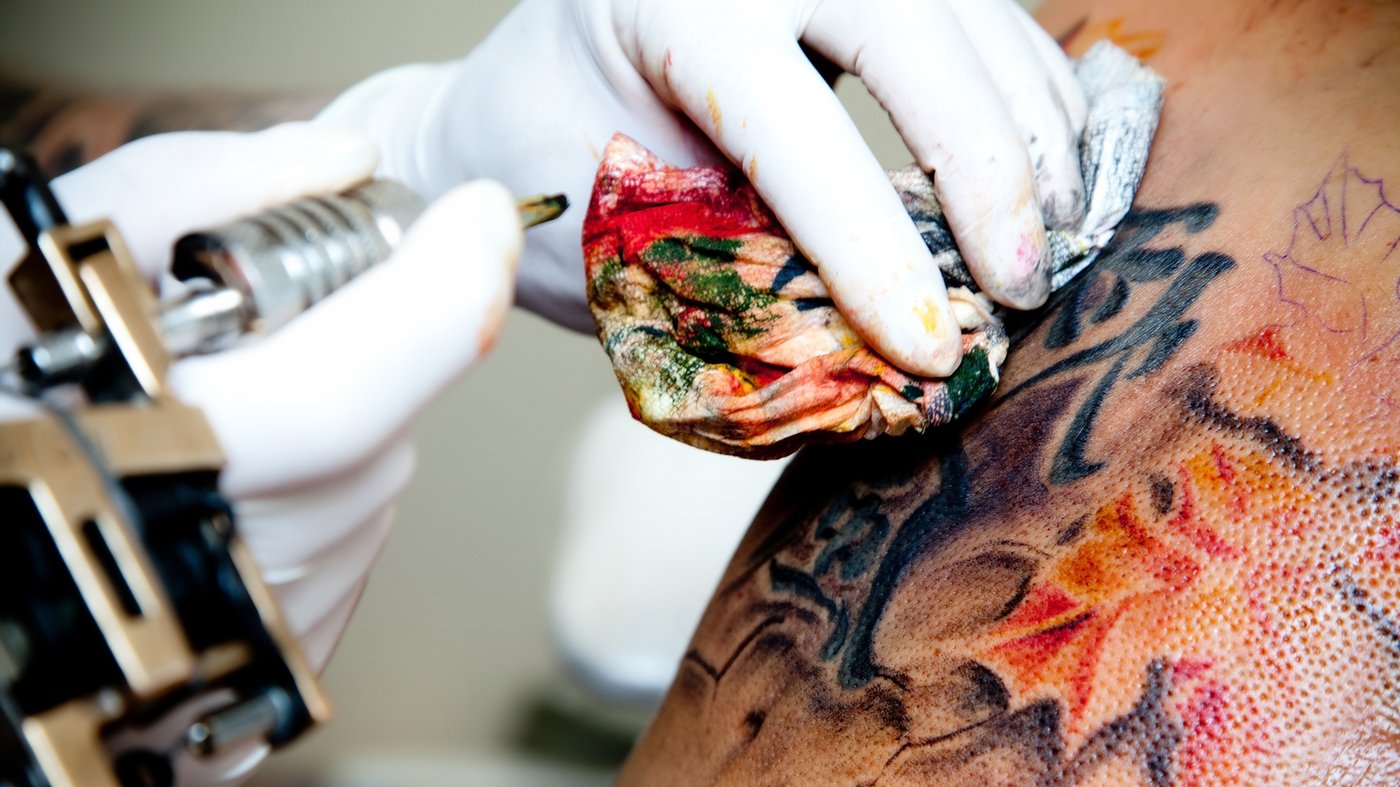

Did you know that a tattoo can stay in the skin forever? Tattoos can last a lifetime because the ink used to create the tattoo is injected into the dermis layer of the skin, which is just below the epidermis. This dermis layer is quite stable and is not easily damaged by the turnover of skin cells like the epidermis layer. In addition, immune cells known as macrophages attempt to wash away the ink particles, but since ink is made up of fairly large particles, many of them remain in place. This is why tattoos can stay on the skin permanently.
Tattoos have been a part of human culture for thousands of years, from the times of ancient tribes to the era of modern lifestyles like today. However, one of the interesting things about tattoos is how they can stay on a person’s skin for a lifetime. When tattoo ink is injected into the skin, many wonder why it doesn’t fade or disappear over time.

When a person gets a tattoo, the needle carrying the ink pierces the epidermis, the outermost layer of skin, and goes into the deeper layers of the dermis. The dermis is the more stable layer of the skin and does not undergo rapid cell turnover like the epidermis. It contains blood vessels, sweat glands, and collagen that give the skin its strength and elasticity. Ink injected into the dermis gets trapped in the collagen matrix and other connective tissues.
One of the main reasons why tattoos can last so long on the skin is due to the role of the immune system. Once ink is injected into the dermis, the body responds by sending immune cells known as macrophages to the area. These macrophages function to engulf the ink particles which are perceived as foreign by the body. However, ink particles are too large for macrophages to fully digest, so most particles remain trapped inside cells or stuck in skin tissue. Although some macrophages will carry the ink particles to the lymph nodes, many particles remain at the site of the tattoo, keeping it visible for years.

While tattoos are generally permanent, there are some factors that can cause tattoo to fade over time. Sun exposure is one of the main causes of tattoo fading. UV rays can damage ink particles within the skin, causing them to break into smaller pieces that can be removed by the body. In addition, skin aging and decreased skin elasticity can also affect the appearance of tattoos. However, even if some fading occurs, the tattoo remains clearly visible over a long period of time because the ink sits within a stable layer of the dermis.
As technology advances, tattoo inks and their application techniques are constantly evolving. Today, many tattoo inks are designed to last longer and are more resistant to external factors such as UV rays. In addition, laser techniques have also evolved to remove tattoos more effectively, although this process does not always completely remove all traces of ink from the skin.
Summary
Tattoos can stay on the skin forever because the ink is injected into the stable dermis layer, where the ink particles are trapped and only a small portion can be removed by the body. While there are several factors that can cause fading, such as sun exposure and aging, tattoos remain a permanent symbol on one’s skin. The role of the immune system and the development of technology also play an important role in ensuring that tattoos remain beautiful and durable all the time.